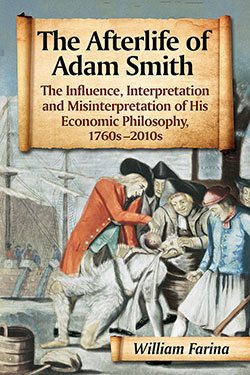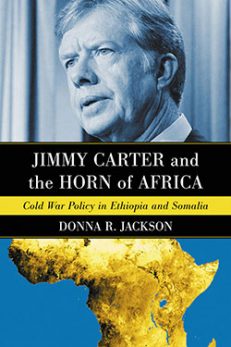The Afterlife of Adam Smith
The Influence, Interpretation and Misinterpretation of His Economic Philosophy, 1760s–2010s
Original price was: $29.95.$23.99Current price is: $23.99.
In stock
About the Book
Mark Twain once quipped that a “classic [is] something that everybody wants to have read and nobody wants to read.” This definition fits Adam Smith’s timeless work The Wealth of Nations, published in 1776 on the eve of the American Revolution. For more than two centuries, partisans and pundits across the political spectrum have selectively quoted (or purported to quote) Smith’s masterpiece of economic theory in support of legislative agendas and public policy. Smith himself would have been surprised at the near universal acceptance of his theories, especially given changes in the world economy since the 18th century. This book provides a close reading of his work, revealing a complex intellect schooled in the high moral ideals of classical philosophy, yet firmly grounded in the pragmatism of international trade and commerce.
About the Author(s)
Bibliographic Details
William Farina
Format: softcover (6 x 9)
Pages: 248
Bibliographic Info: notes, bibliography, index
Copyright Date: 2015
pISBN: 978-0-7864-9484-2
eISBN: 978-1-4766-2360-3
Imprint: McFarland
Table of Contents
Acknowledgments vi
Introduction 1
1. Businessmen Become Revolutionaries (1764–1777) 11
2. A New Republic Grapples with Old Issues (1778–1790) 22
3. The British Empire Makes War Against Its Offspring (1791–1815) 33
4. Almost Free Labor (1816–1837) 45
5. Might Makes Right (1838–1850) 57
6. Northern Industry Tames Southern Agriculture (1851–1865) 67
7. More Competition, More Oppression (1866–1877) 78
8. The Great American Relocation (1878–1890) 89
9. A Clumsy Foray into Colonialism (1891–1901) 100
10. Trustbuster (1901–1913) 111
11. Anglo-American Power Shift (1914–1921) 121
12. Ascendant Consumerism (1922–1928) 130
13. The Implosion of Laissez-Faire (1929–1939) 140
14. An Unprecedented Middle Class (1941–1959) 152
15. Military-Industrial Complex (1960–1975) 164
16. Tax Credit Utopia (1976–1988) 175
17. A Kinder and Gentler Corporate Mandate (1989–2000) 185
18. Post 9-11 (2001–2015) 196
Summary206
Chapter Notes 213
Selected Bibliography 231
Index 233
Book Reviews & Awards
“well researched, compelling, and well worth reading. Recommended”—Choice.





